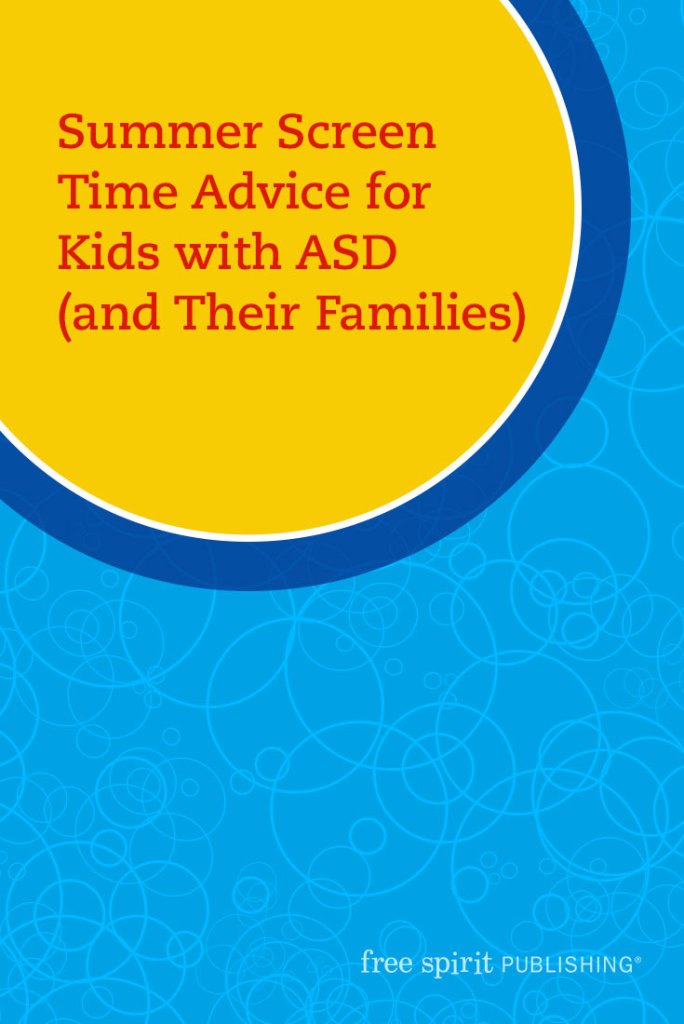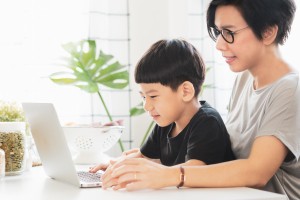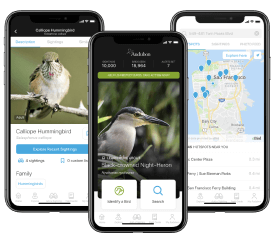by Dr. Elizabeth Reeve and Elizabeth Verdick, authors of The Survival Guide for Kids with Autism Spectrum Disorder (And Their Parents)
 Welcome to the summer of 2021! As it has been for everyone, the past year and a half has been challenging and life-changing for those of us caring for someone on the autism spectrum. We’re all emerging from time spent mostly at home, where we found new ways to combine work, school, therapies, and play.
Welcome to the summer of 2021! As it has been for everyone, the past year and a half has been challenging and life-changing for those of us caring for someone on the autism spectrum. We’re all emerging from time spent mostly at home, where we found new ways to combine work, school, therapies, and play.
Elizabeth Verdick: As my 19-year-old son Zach said the other day, “Those of us with ASD or who are introverts may be sort of shell-shocked going out into the world to talk to people face to face again, not on a screen. Without a mask. I didn’t mind masks.” Our family spent the pandemic navigating Zach’s freshman year of college, during which he lived at home and did a mix of virtual and in-person classes. Most of his days were spent on a screen, whether it was for class, band rehearsals, or socializing.
Dr. Elizabeth Reeve: Many ASD families struggled with decreases in support services, social isolation, and education challenges. For some, mental and physical health suffered due to all the changes and transitions. For others, the comfort of being at home and avoiding the stress of day-to-day activities resulted in a time of peace and decreased stress. My patients did virtual visits, and again and again, I heard that families were struggling with increased screen time and a sedentary lifestyle. The ups and downs of technology were the main topics of conversation.
Now that life is returning to “normal,” we’re all finding our new norms. Services such as in-person therapy and in-home supports are reopening. However, many families have expressed that the option of virtual visits greatly improved their lives. People appreciated not having to take time off work, commute to appointments, or transport a child with special needs or behavioral issues. In many ways, screens have expanded our ability to interact with the world, including social and cultural events. The challenge is finding balance.

Parents report that “screen school” has increased their children’s resistance to doing other activities. Kids and teens on the autism spectrum have greater difficulty with transitions or stopping repetitive behaviors, and now face the added challenge of having to break screen-time habits created over the past year. On top of that, families have told Dr. Reeve they’ve noticed increased depression or anxiety and decreased sleep.
So, back to the summer of 2021—we see it as a great time to focus on physical and mental health. For every family member, not just a child or teen on the spectrum. Post-pandemic, let’s remember to be gentle with ourselves, and generous with others, moving forward. Get active—and get outdoors as often as possible for improved health. Daily exercise in the fresh air helps us cope with stress, create endorphins, increase fitness, and sleep better at night. Plus, outside time is often screen-free time!
For more ideas on curbing screen-time this summer, try the following tips:
- Set up a “Family Media Plan,” based on the American Academy of Pediatrics recommended guidelines found at healthychildren.org/MediaUsePlan. The plan can address the technology and media that your family decides are okay to use. Set limits on the hours per day spent with electronic devices, based on the age of the person in question. When a limit is set and followed, the transitions off of a device are less tense.
- Decide which shows, video games, computer games, and websites are allowed for your child. You can set up “Parental Controls” on electronic devices, if needed.
- Start to think of screen time as together time, when appropriate. Play video games as a family, watch educational and/or entertainment programming together, and use technology mainly to connect with faraway friends and family. Place electronic devices in common areas of the home so family members can’t close themselves off with their tech gadgets.
- Break up screen time into 30-minute increments. This makes transitions easier because your child has less time to get overly focused or stressed. Then set up a timer or a five-minute warning system so your child knows when to stop.
- Turn off the screens an hour before bedtime, to help people relax and to limit nighttime exposure to blue lights (they activate the brain and make good sleep harder to achieve). Keep electronics out of bedrooms at night—it’s too tempting to have them nearby.
- Now that school is out, you’ll need to take a closer look at what your kids are doing while on screens. Who are they texting? What social media are they exposed to? Which websites do they frequent? Do you approve of the video games your kids or teens play?
- If needed, use screen time as a reward system, especially if your child struggles with behavioral issues. For example, a half hour outside exercising could lead to a half hour of gaming, or whatever you think is fair.
- If your child is really into technology, encourage the use of electronic apps and programs that offer virtual exercise instruction. It’s a win-win.

Elizabeth Verdick: My son loves, loves, loves technology and he and his friends would game all night if they could. Now that the weather here in Minnesota is warm, he’s found a way to combine tech and fresh-air time. Zach goes on walking trails with his cell phone and his sighting scope to look for birds. He’s been passionate about birdwatching since age three, and he’s making lists of all the species he sees while on walks. He goes to the Audubon app to listen to recordings of bird calls, and then plays them while he walks to learn how different species sound. The Audubon app has a feature called “Sightings/Explore,” which lets you report the birds you’ve seen and then access other people’s reported sightings. Zach’s scope makes it fun and easy for him to see faraway birds. So far this summer, he’s spotted many a Turkey Vulture, Forester’s Tern, Bald Eagle, and Great-Crested Fly Catcher. As he says, “It’s a great way to indulge in something I like while staying active. And it gives me time to myself in nature instead of my room.”
Congratulations to all of us for getting through the past year. We can now welcome back the connections we’ve missed, while paying closer attention to any positive changes that we observed in our lives when it seemed like time stopped. We hope your summer of 2021 is filled with adventure, light, and birds in flight.

Elizabeth Reeve is a child and adolescent psychiatrist who has worked with children and teens on the autism spectrum for 30 years. She has an adult son with ASD.
Elizabeth Weiss Verdick has written children’s books for kids of all ages, from toddlers to teens. Elizabeth loves helping kids through her work as a writer, an editor, and a mentor to children and teens. She lives in Minnesota where she plays traffic cop for her many furry, four-footed friends.
“Summer Screen Time Advice for Kids with ASD (and Their Families)” originally appeared at freespiritpublishingblog.com. Copyright © 2020 by Free Spirit Publishing. All rights reserved.

